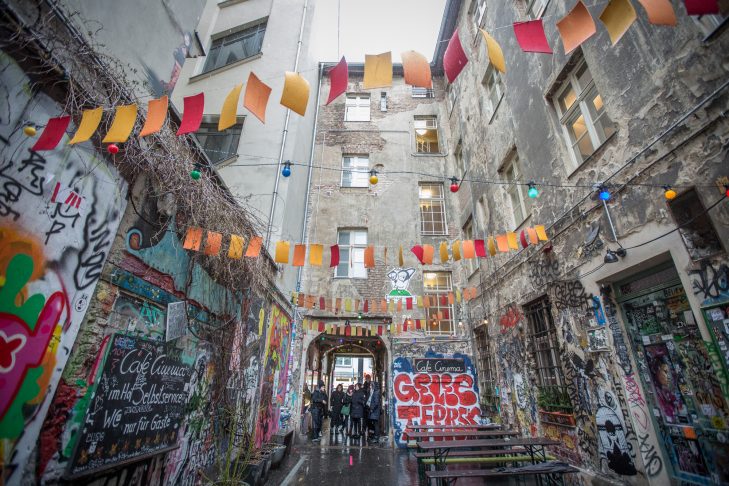CJP created and funded Together, Restoring Their Names, a fellowship with year-round Shoah education programming and service-learning trips to Europe. The project is part of the IACT campus initiative, and just one example of how CJP helps students deepen their Jewish journeys after Birthright.
This month we took 10 students to Berlin to learn about Jewish life in Germany before, during and after the war. We applied a gender/women’s studies framework to the trip, including half a day at Ravensbruck, the only concentration camp created for women. Importantly, our students were from multiple religious and academic backgrounds, and all of them committed to sharing about the trip on social media while it took place.
Jewish learning highlights included attending Kabbalat Shabbat services in the restored New Synagogue, and touring the former Mitte Jewish neighborhood. Students also probed issues of relevance to Germany and the U.S. today, including the influx of Mideast refugees and Germany’s role in combatting resurgent anti-Semitism in Europe. Students held diplomatic meetings at Germany’s foreign office, and Israel’s Berlin embassy.
Toward the end of the trip, two educational forums were planned by the fellows: a trip presentation to take place on Feb. 1 at Wellesley College with Germany’s Consul-General to New England in attendance, and academic lectures tied to the trip to be delivered at Wellesley’s annual Ruhlman Conference on April 27. Students will also help implement Shoah-related programming through the Israel Campus Roundtable.
The 10 student fellows included:
Emma Gellman, Wellesley College
Yaela Halper, Brandeis University
Kate Harrigan, Wellesley College
Elan Kawesch, Brandeis University
Callie Kim, Wellesley College
Erin Miller, Boston University
Chelsea Roston, Wellesley College
Arianna Regalado, Wellesley College
Franzi Ross, Wellesley College
Samantha Stewart, Wellesley College





This post has been contributed by a third party. The opinions, facts and any media content are presented solely by the author, and JewishBoston assumes no responsibility for them. Want to add your voice to the conversation? Publish your own post here. MORE

